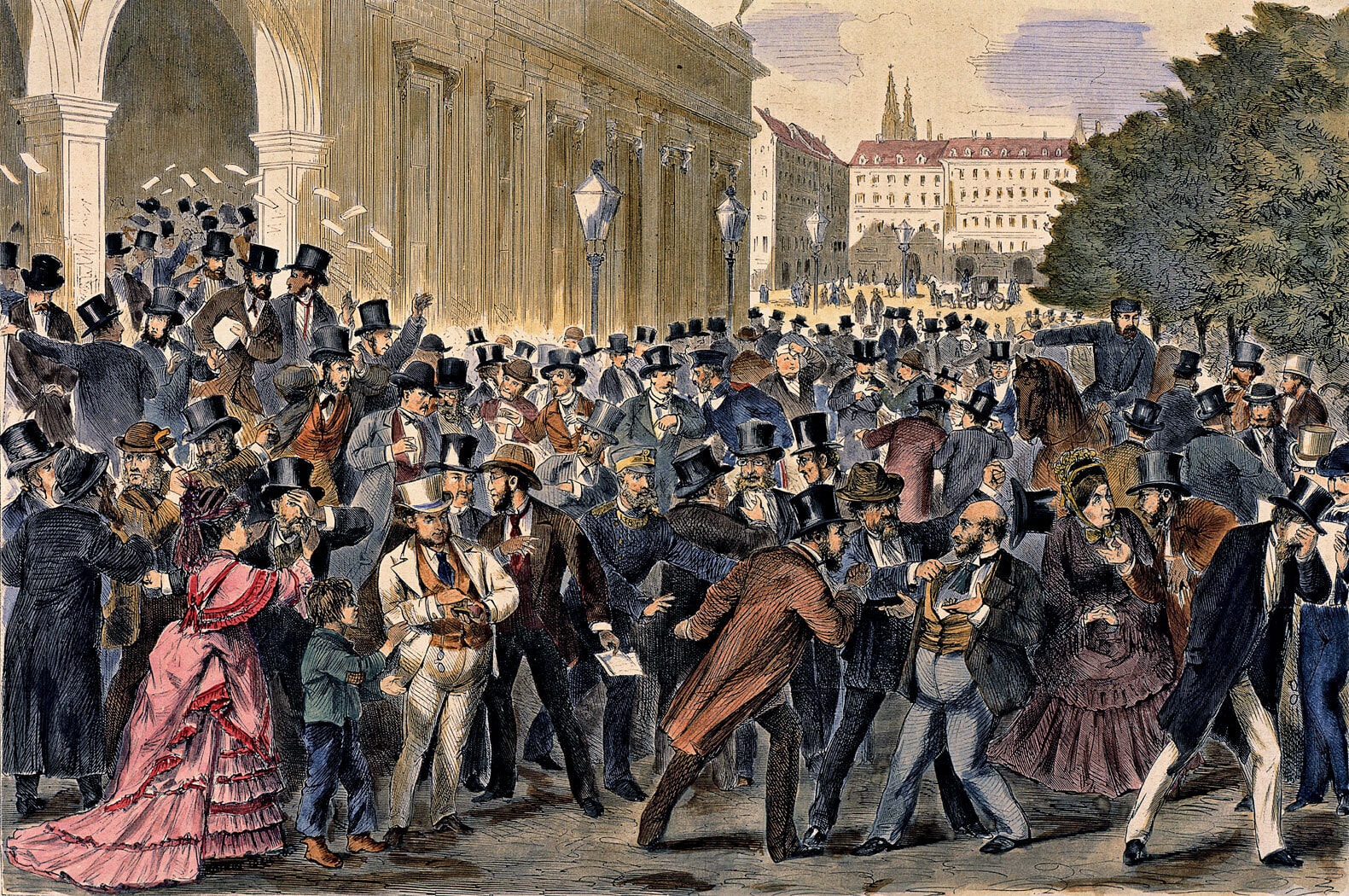Credit cycles used to drive the economy – now it's disruption

The new economic cycle: permanent disruption.
Image: REUTERS/Neil Hall
Stay up to date:
Technological Transformation
- Businesses can no longer strategize solely according to availability of credit.
- Despite economic growth, chronic disruption makes it challenging to do business.
- Increased agility must be balanced against key value propositions.
The driving force of the economy is changing. The phenomenon of the economic cycle, with its boom and bust of credit expansion and contraction, has historically driven the fortunes of business and the economy at large.
As we saw in the 2008 financial crisis, these factors remain important. However, gaps between cycles have been lengthening in recent decades, and governments and business alike have become ever more adept at managing their effects.
At the same time, the pace and impact of disruption, driven by a range of technological, societal, economic, environmental, political and regulatory shifts, have accelerated dramatically.
Disruption is the new economic driver.

To be more specific, this accelerating pace and the cumulative impact of disruptive waves is the primary strategic challenge facing both governmental and business leaders. These are increasing in frequency and “stacking” on top of one another to the point where disruption has become unrelenting and constant.
When industrial performance correlated tightly to the credit cycle, business planning could be driven by expectations around economic expansion or contraction. We are now in the 10th year of US economic growth, the longest on record. This should be the best of times, and for some, it is – but businesses across most industries are struggling to cope with this chronic disruption.
What causes disruption? And what are leading organizations doing to create, mitigate and, in some cases, harness its effects?
Many disparate but interrelated forces are at the heart of disruptive change today. These include such factors as the rise of Asia, globalization, demographic changes, urbanization, income inequality, human migration and climate change, with technological innovation having become disruption’s primary accelerant.
While all of these factors are important and have different impacts across industries, our analysis shows three interwoven trends affecting every industry in fundamental ways.

Of all the technological forces of disruption, connective technologies are the primary drivers of change across the industries we examined. Innovations such as the internet of things (IoT) and cloud networks have reshaped our personal lives and ways of working, beginning with the internet but accelerating exponentially with its mobile applications.
It's estimated that more than 5 billion people around the world have a mobile phone – over half being smartphones – keeping them constantly connected. According to the Pew Research Center, the average smartphone user spends almost three hours a day on their device.
Why? The profusion of data, in the form of news articles, streaming entertainment, social media, online shopping or the latest meme. At the same time, these individuals create a massive amount of data about themselves, which in turn becomes a commodity for companies to utilize.
Just as data is at the centre of self-reinforcing forces driving technological change, individuals increasingly place themselves at the centre of their own ecosystems, enabled by connectivity. We call this phenomenon the rise of the “self-centric consumer”.
No longer limited by geographical proximity, individuals can connect with communities and with brands around their shared values. Similarly, these new technologies enable consumers to expect hitherto unachievable levels of personalized service and convenience.
In the automotive industry, that has led to the rise of ride-sharing platforms and the potential for subscription models, allowing consumers to achieve their mobility needs in newly customized approaches. In retail and consumer products, that has meant rethinking how to reach the consumer in a consistent way across many parallel channels anytime, anywhere.
While consumers are more empowered, they are also increasingly more ill at ease. A 2019 Gallup poll found that sadness, anger and fear reached record highs for the second consecutive year around the world.
The rapid pace of disruption contributes greatly to this insecurity. Meanwhile, the potential impact of new technologies (particularly automation), the movement of jobs to lower-cost labour centres, heightened levels of immigration, and the consequences of climate change and pollution serve as contributing factors. The increasing political instability and divisiveness in much of the world are both an outcome of and contributor to this unease, as well.
Connectivity also lies at the center of this uncertainty. Consumers are bombarded by an overwhelming amount of information, much of it conflicting and seemingly irreconcilable. Individuals want clarity, ease, and certainty in filtering this overload of choice. Trust, built through perceived shared values, becomes a prerequisite to clarifying their options, with algorithms playing a crucial role.
What is the World Economic Forum doing about digital trade?
Today, disruption has created a fast-changing and less predictable environment for most industries, leaving many leaders to feeling adrift in uncharted waters. The strategies and operating models that provided both growth and profitable returns in the past are no longer reliable.
This complex reality requires a different set of skills from business leaders. Historically, the key to success was executing a strategy to maximize a set of core competitive advantages that remained fairly static over time. Today, those competitive advantages are, more often than not, in flux. Therefore, agility and the ability to change direction in real time have become essential survival strategies for all organizations.
That said, while responding to changing consumer behaviours and competitive dynamics is essential, chasing all the latest technologies or trying to be all things to all people is not. By focusing on key value propositions, companies can retain the parts of the value chain most important to their customers and tailor their business models to meet consumers’ self-centric demands.
And at a time when investor and popular sentiment places a premium on the “new”, it is important to remember there is still strength in incumbency. Legacy businesses, which are frequently seen as an impediment to change, can finance investment into new technologies and faster-growing products or services. And in an uncertain world, brands that connect directly with consumers through authenticity, purpose and shared values can build trust and retain customer loyalty.
Don't miss any update on this topic
Create a free account and access your personalized content collection with our latest publications and analyses.
License and Republishing
World Economic Forum articles may be republished in accordance with the Creative Commons Attribution-NonCommercial-NoDerivatives 4.0 International Public License, and in accordance with our Terms of Use.
The views expressed in this article are those of the author alone and not the World Economic Forum.
Related topics:
Forum Stories newsletter
Bringing you weekly curated insights and analysis on the global issues that matter.
More on Economic GrowthSee all
Juan Caballero and Ana Sampaio
July 18, 2025
John Letzing
July 17, 2025
William Dixon
July 16, 2025
Aengus Collins
July 15, 2025
Guy Miller
July 15, 2025
Aaron Sherwood
July 15, 2025





